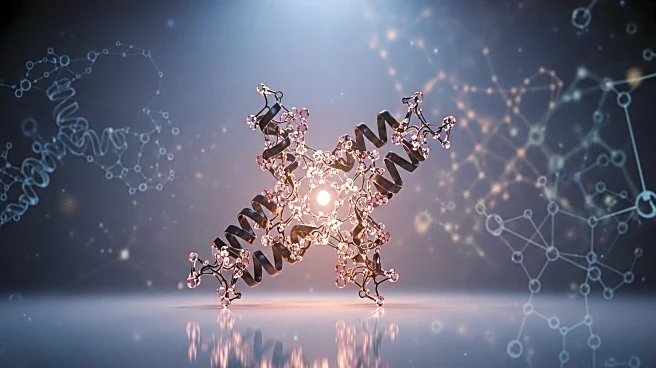What's Happening?
Researchers at the University of Washington have developed AI-designed protein switches that can control drug activation with unprecedented speed. These molecular switches facilitate rapid dissociation rates, offering a powerful tool for safer medicines and sensitive biosensors. The study applied the switches to interleukin-2, a cytokine used in cancer therapy, demonstrating potential for tunable treatments. The technology could improve therapeutic safety and enable localized drug activation, enhancing precision in medical applications.
Why It's Important?
The ability to control drug activation with precision is crucial for minimizing side effects and optimizing therapeutic outcomes. AI-designed protein switches represent a significant advancement in drug design, offering new possibilities for personalized medicine. By enabling rapid response to therapeutic cues, the technology could improve the safety and efficacy of treatments for various diseases, including cancer. The study highlights the potential for AI to revolutionize drug development, providing innovative solutions to longstanding challenges.
What's Next?
Future research will focus on developing switches that respond to therapeutically relevant proteins, supporting drug activation in disease-specific conditions. The technology may be applied to other areas, such as biosensors for rapid disease detection. As AI continues to advance, its integration into drug design processes is likely to expand, driving innovation in healthcare.
Beyond the Headlines
The development of AI-designed protein switches raises ethical considerations regarding the use of AI in medicine, emphasizing the need for responsible implementation. The technology's potential to enhance drug safety and efficacy underscores the importance of continued research and collaboration in the field.










